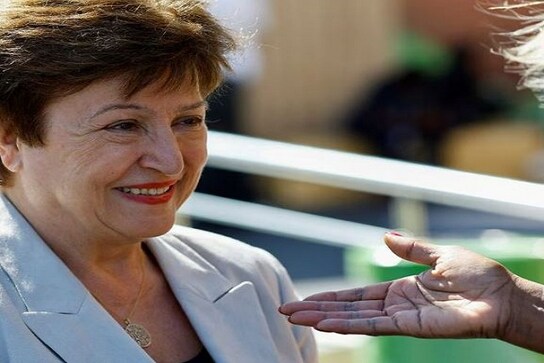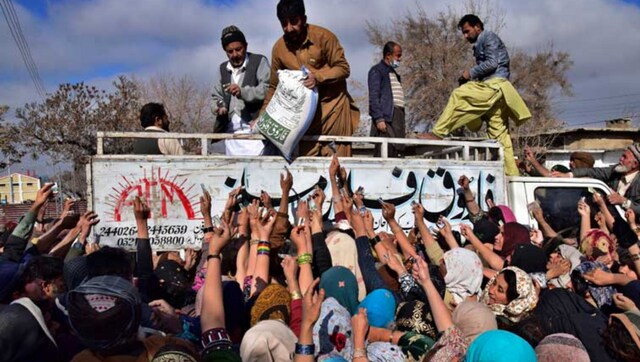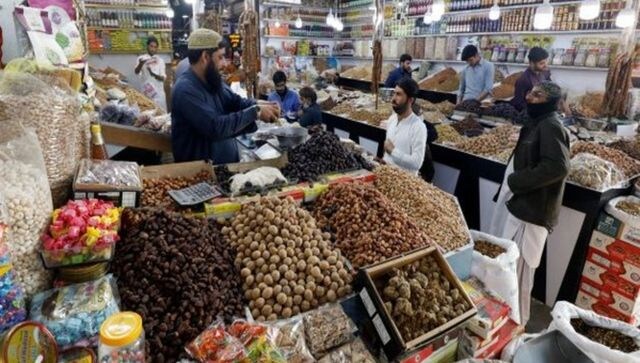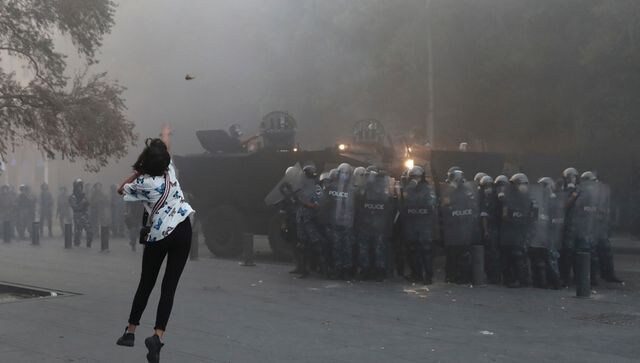IMF chief calls on central banks around the world to continue fighting inflation
Since last year, central banks have been hiking their benchmark lending rates to combat inflation, which has reached levels not seen in many nations, including the US, in decades

International Monetary Fund Managing Director Kristalina Georgieva. Reuters File
Washington, United States: Despite continued concerns about financial stability, central banks around the world should continue to fight inflation by raising interest rates, the chief of the International Monetary Fund told AFP on Thursday.
Since last year, central banks have been hiking their benchmark lending rates to combat inflation, which has reached levels not seen in many nations, including the United States, in decades.
But, their struggle has been compounded by the recent failure of Silicon Valley Bank due to excessive interest-rate risk, which triggered a period of instability in the banking sector on both sides of the Atlantic.
“We don’t envisage, at this point, central banks stepping back from fighting inflation,” IMF managing director Kristalina Georgieva said in an interview ahead of the fund’s spring meeting next week.
“They have to stay the course in a much more difficult, more complex environment,” she said.
The biggest casualty so far has been Swiss banking giant Credit Suisse, which was pushed by regulators to merge with regional rival UBS on concerns about its long-term financial health.
But Georgieva said: “Central banks still have to prioritize fighting inflation and then supporting, through different instruments, financial stability.”
US-China tensions weigh on growth
Georgieva added that US-China trade tensions — part of a broader realignment of the global economy — were also having a detrimental impact on world growth.
While there has been a long period in which decisions on production were guided by costs, “this is no more,” she said.
“Today, the US, but also other countries, are saying I want to have security of supplies and I want to protect national security,” she added.
“The question is how far they should go,” she asked, adding that it was possible to guard both aspects “without completely undermining the foundation for growth.”
Left unchecked, the long-term cost of trade fragmentation could be as high as seven per cent of global economic output, she said in a speech earlier on Thursday to ambassadors and officials in Washington.
‘Elusive’ recovery
In the same speech, she warned that a continued slowdown in almost all the world’s advanced economies is expected to drag global growth below three per cent this year.
“With rising geopolitical tensions, with inflation still running high, a robust recovery remains elusive,” she said. “That harms the prospects of everyone, especially for the most vulnerable people and most vulnerable countries.”
Global growth almost halved last year to 3.4 per cent as the impact of Russia’s invasion of Ukraine rippled through the world economy, abruptly halting the recovery from the COVID-19 pandemic.
While Asia’s emerging markets are expected to see substantial increases in the economic output — with India and China predicted to account for half of all growth this year — the good news will be outweighed by a slowdown expected for 90 per cent of the world’s advanced economies.
“Growth remains historically weak -— now and in the medium term,” said Georgieva.
She added that global growth will likely remain at roughly three per cent for the next half-decade, the lowest medium-term forecast since the 1990s.
Low-income countries are expected to suffer a double shock from high borrowing costs and a decline in demand for their exports, which Georgieva said could cause poverty and hunger to increase.
Read all the Latest News, Trending News, Cricket News, Bollywood News,
India News and Entertainment News here. Follow us on Facebook, Twitter and Instagram.
also read

Pakistani professionals struggle to buy basic items amid economic crisis
Pakistan is no stranger to economic crises - this is its fifth IMF bailout since 1997 - but economists say the latest measures, which include higher taxes and fuel costs, are hurting educated professionals. Many say they are cutting down on necessities to make ends meet

As country reels under inflation, Pakistanis feel pocket pinch in Ramzan month
Rising food inflation in the country has hit Pakistanis particularly hard this year. The festival of prayer and lavish food preparations has been overshadowed by soaring inflation in the country. Tightened budgets have hit Pakistan's poorest hardest.

Amnesty: West's 'double standards' fuel Mideast repression
Amnesty urged the international community to hold perpetrators of human rights abuses in the Middle East and North Africa to account and to address the issue of migration without discrimination.
